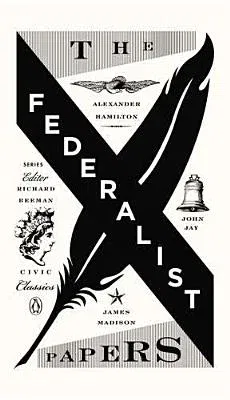A selection of nineteen essential essays from The Federalist Papers
in their original lengths by James Madison, Alexander Hamilton and John
Jay, with notes by Richard Beeman
Penguin presents a series of six portable, accessible, and--above
all--essential reads from American political history, selected by
leading scholars. Series editor Richard Beeman, author of The Penguin
Guide to the U.S. Constitution, draws together the great texts of
American civic life to create a timely and informative mini-library of
perennially vital issues. Whether readers are encountering these classic
writings for the first time, or brushing up in anticipation of the 50th
anniversary of the Civil Rights Act, these slim volumes will serve as a
powerful and illuminating resource for scholars, students, and
civic-minded citizens.
Written at a time when furious arguments were raging about the best way
to govern America, The Federalist Papers had the immediate
practical aim of persuading New Yorkers to accept the newly drafted
Constitution in 1787. In this they were supremely successful, but their
influence also transcended contemporary debate to win them a lasting
place in discussions of American political theory. The Federalist
Papers make a powerful case for power-sharing between State and Federal
authorities and have only risen in legal influence over the last two
centuries. Beeman's analysis helps clarify the goals, at once separate
and in concert, of Madison, Hamilton, and Jay during their writing, and
his selection of some of the most important papers show the array of
issues--both philosophical and policy-specific--covered by this body of
work.
"The best commentary on the principles of government which ever was
written" - Thomas Jefferson

